How to care for butcher's block countertops – an expert guide
Give your surfaces some much needed TLC with our guide to how to care for butcher's block countertops
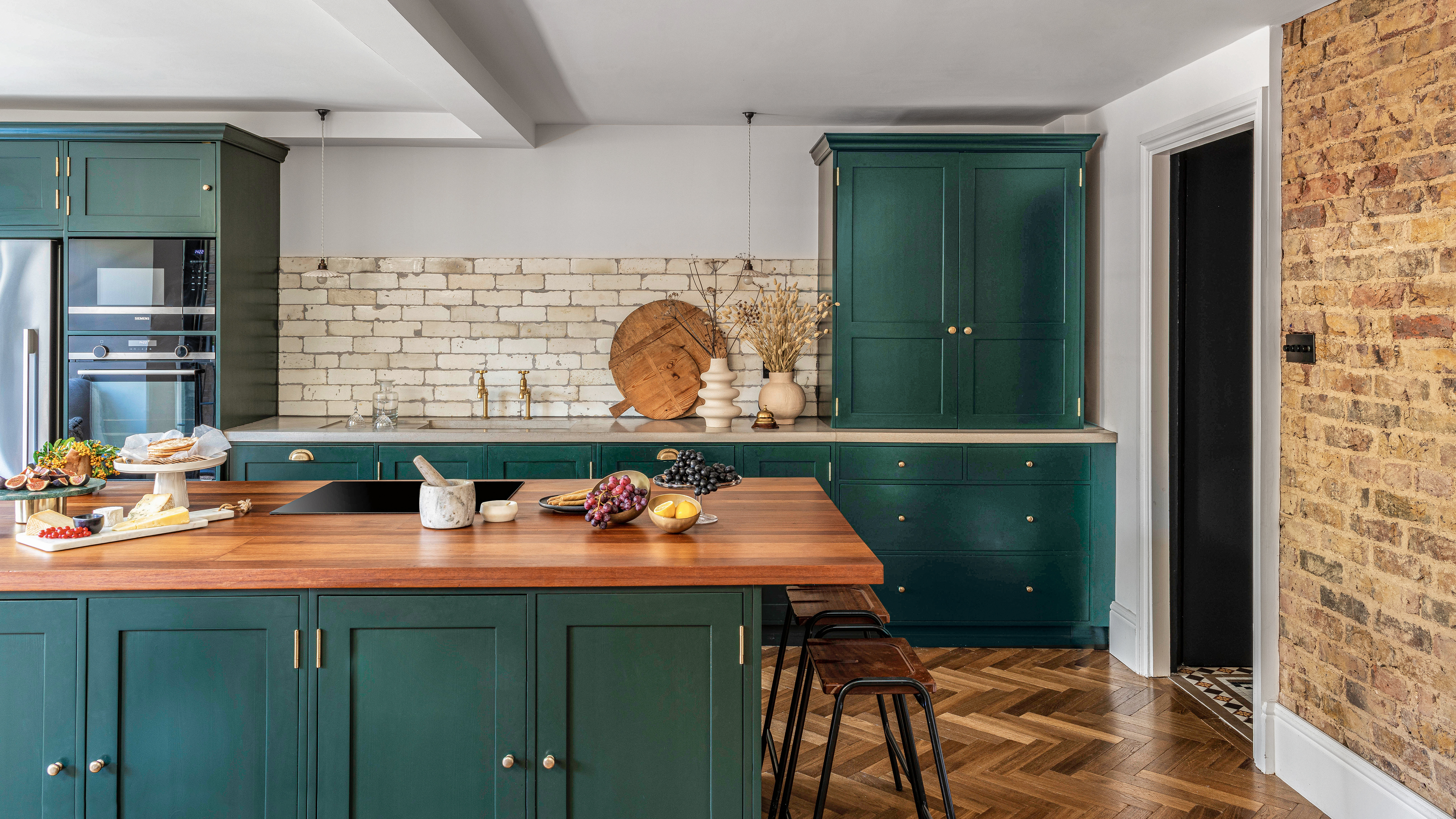

If you are considering adding a butcher's block to your kitchen, or even just opting for solid wood worktops, knowing how to care for butcher's block countertops is great to have in your home ec arsenal. These surfaces work hard. They are used pretty much daily to chop, prep, and cook and therefore they need a bit of TLC in order to be looking and working at their best.
And this is in no way a laborious job, there are plenty of quick and easy tips to care for wooden kitchen countertops that can take no more than five minutes. We asked the kitchen experts for their best hacks to help...
How to care for butcher's block countertops
1. Use the salt rub trick
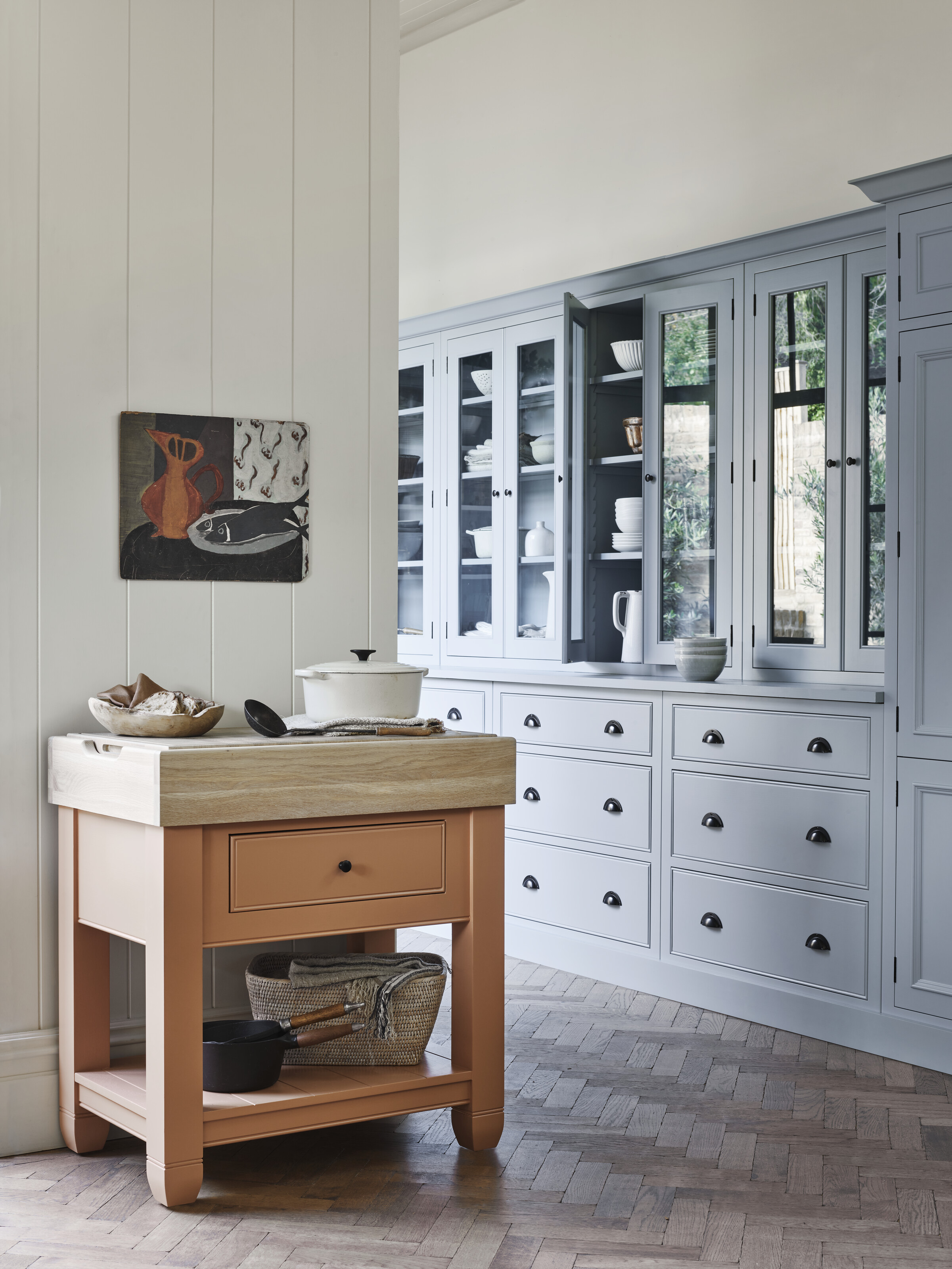
Large Chichester butcher's block, Neptune
After a month of being chopped on, prepped on, and generally spilled all over, your butcher's block can sometimes need an exfoliating spritz.
‘After regular use, you might want to refresh the surface of your butcher’s block to reduce any wear and tear to the top,' says Emma-Louise Marston, store leader of NeptuneFulham.
'To do this, simply sprinkle some dry salt across the surface and leave overnight. The next morning, gently scrape off the salt and wipe down,' she suggests. 'Most signs of wear should have diminished and your butcher’s block will be ready for use again.’
2. Clean and sanitize daily
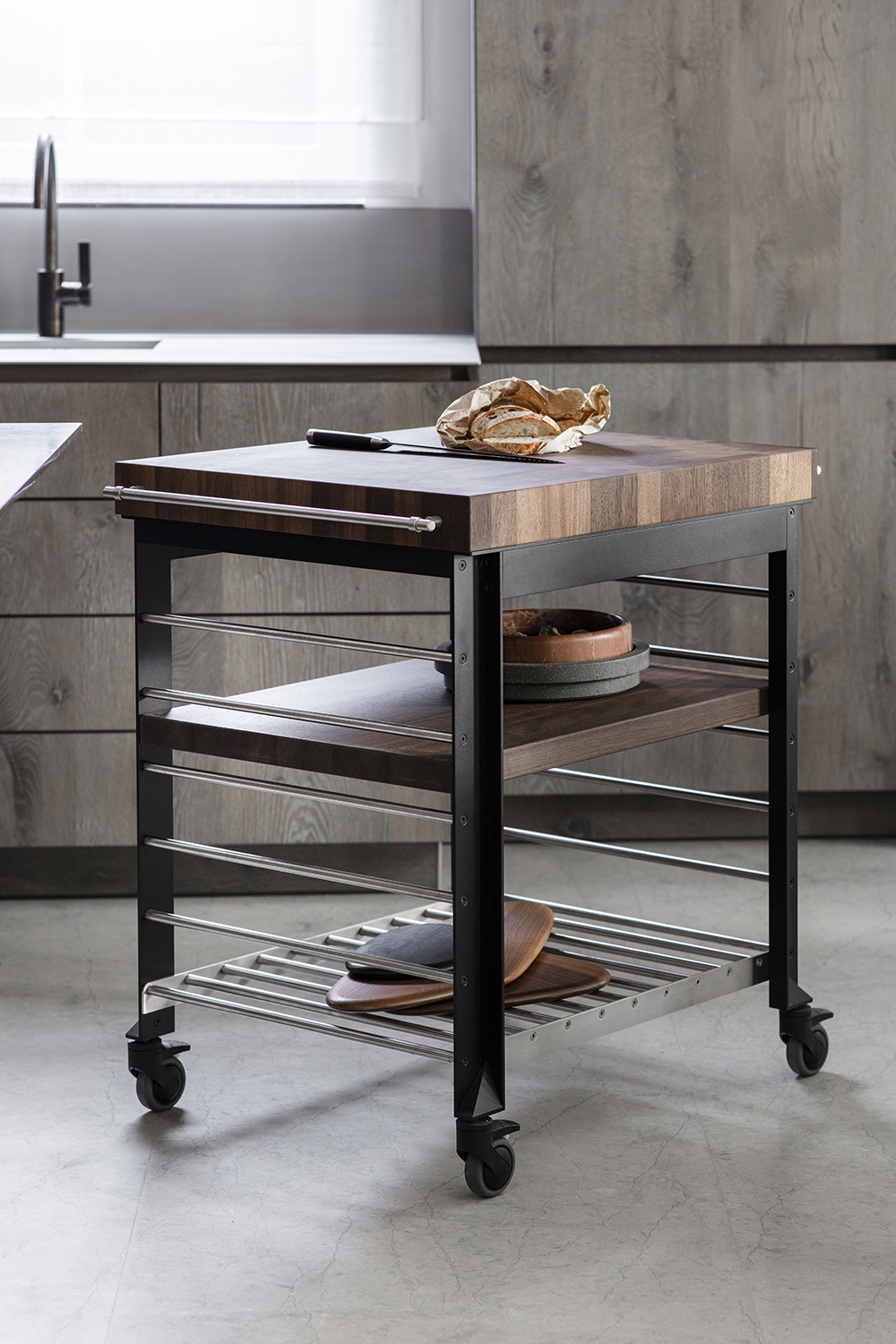
It's important to keep butcher blocks sanitized after use. Cutting directly on the surface is convenient, but it does leave stains so cleaning and sanitizing the surface should be done daily. Lightly scrape off any stuck-on residue with a spatula, and then use a damp cloth to wipe the surface clean with mild dish soap and water.
Then combine equal parts water and equal parts white vinegar in a spray bottle, spray it over the surface and wipe it down with another damp cloth. Be sure to always dry your surfaces after cleaning too using a clean, dry microfibre cloth.
3. Buff away any stains or scratches
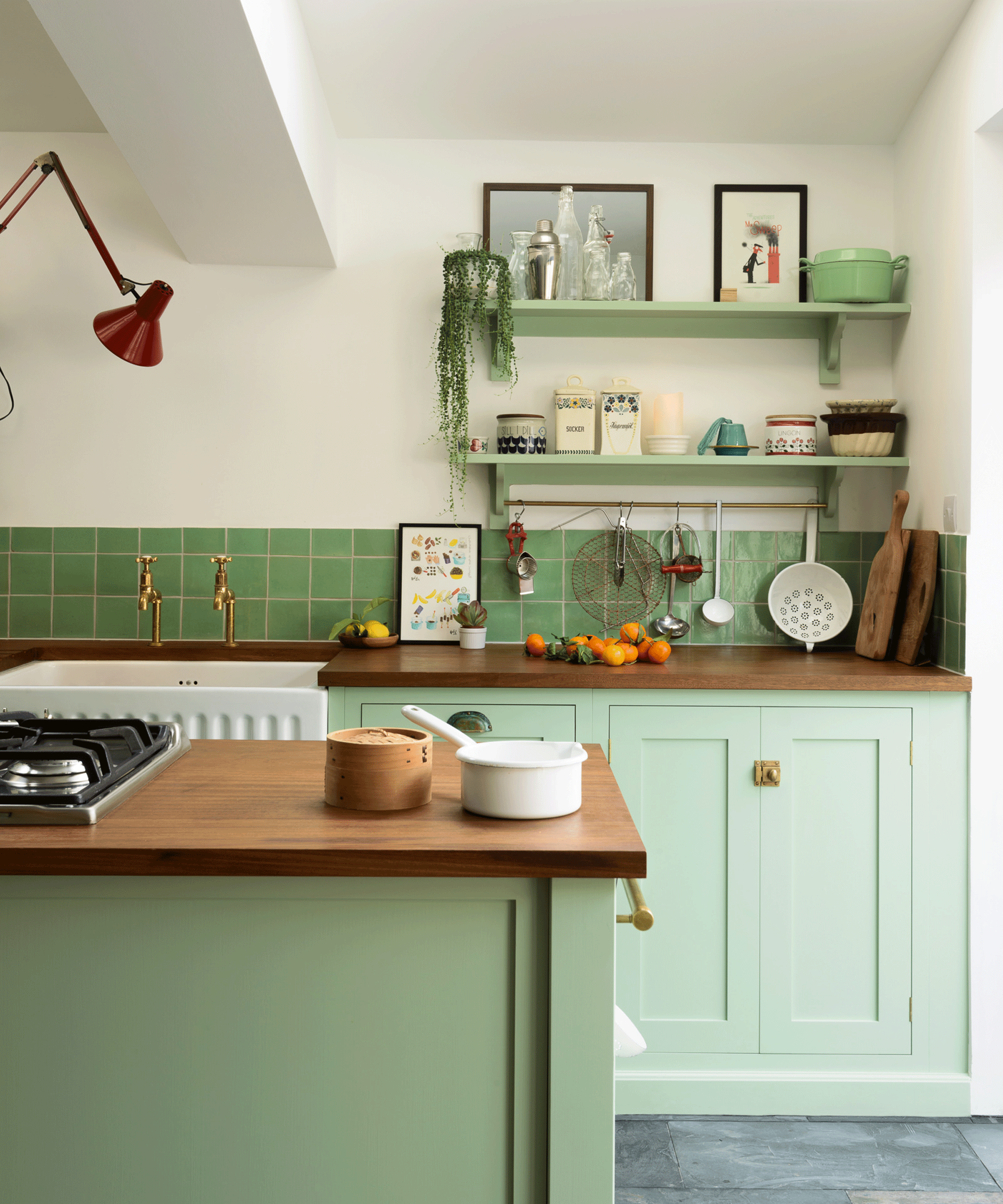
Scratches and stains are a given with a butcher's block countertop, especially as you are using it to its full potential as a chopping board. However, you can pretty quickly get the surface looking new again by simply sanding away scuffs and stains.
Start by wiping down the countertop and ensure there are no foodstuffs left on the surface. Then use a fine-grit sandpaper to carefully and slowly buff away any scratches. Once the surface is clean of scratches, wipe away any dust with a dry cloth and coat the surface in mineral oil to seal it.
4. Be sure to mop up spills quickly
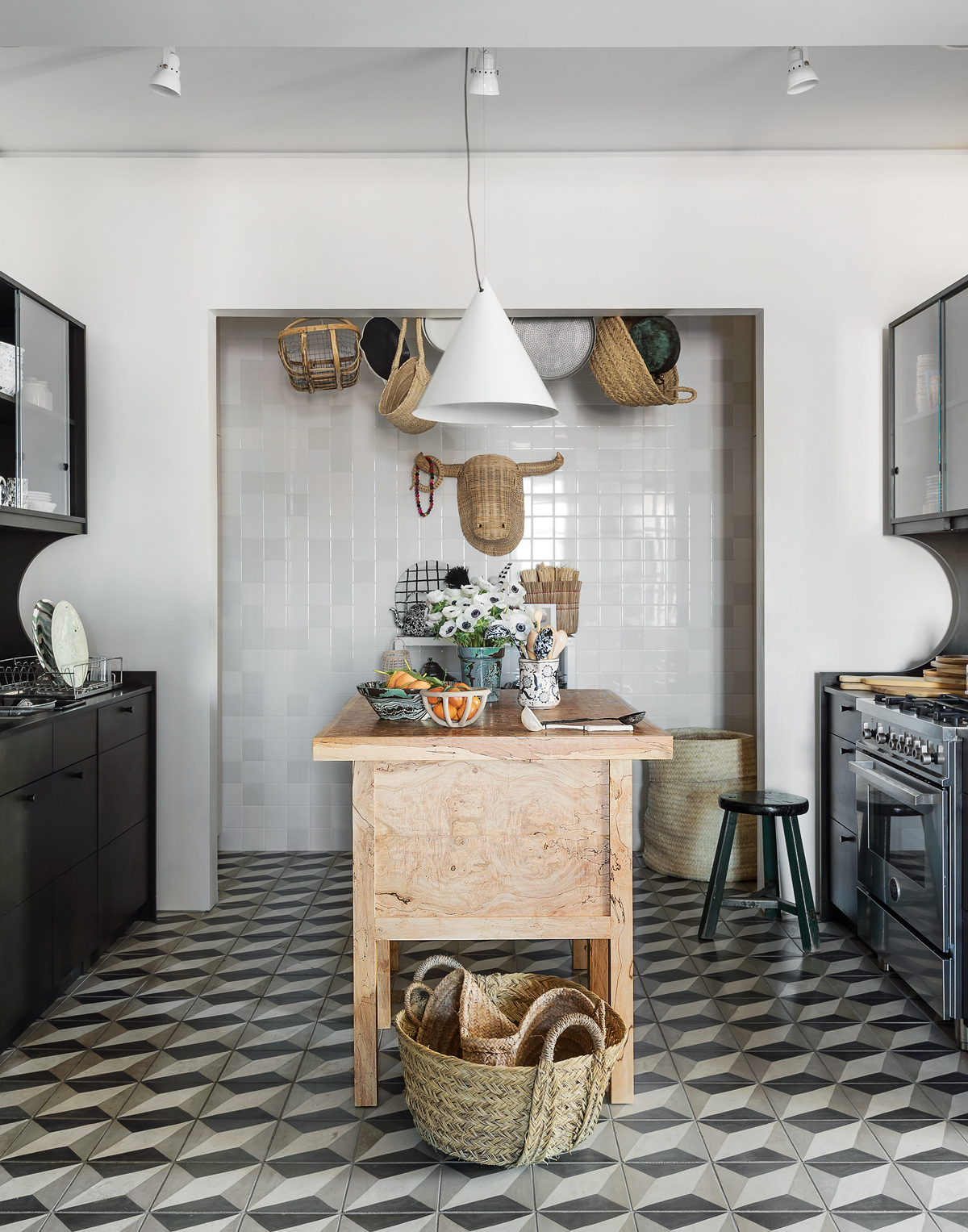
To help ensure your butcher’s block stays looking its best for as long as possible, another top tip is to wipe up any leftover or spilled liquids as quickly as possible to avoid long-term damage. It's a simple trick that goes a long way.
'During use do not allow liquids to stand on your butcher’s block for long periods of time, especially from fresh or wet meats, explains Tom Attwood, Product Technologist at The Cotswold Company. 'Due to the nature of the material, if any liquids were to soak into the wood it could cause it to expand and soften - this would affect the strength of the glued joints and overall appearance of your butcher’s block.'
5. Keep up regular oiling
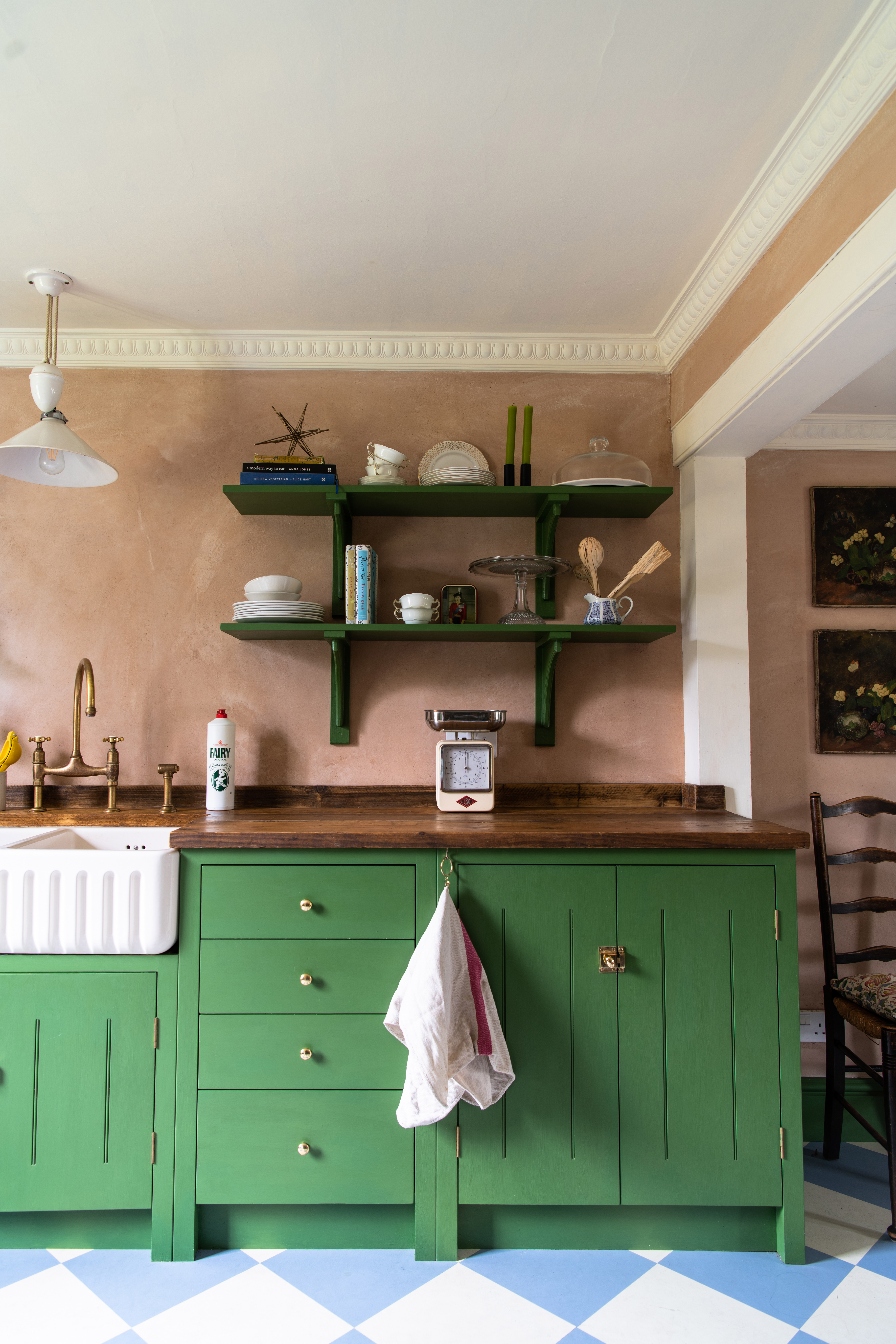
As we have established, butcher's block countertops work hard, and as well as daily maintenance, they also need ongoing care. Don't worry, it's not too time-consuming to keep your butcher block looking at its best, a simple way to give a lackluster countertop a new lease of life is with oil.
If your countertop is looking a tad dull or dry, simply give in a coat of mineral – just ensure it's food safe! Clean down your surface first and apply a thin coat using a dry microfibre cloth. Let it dry for an hour or so before you use and keep this up every few months.
'Wooden worktops are tactile in nature and bring instant warmth to your kitchen. They do require regular oiling, but a little care goes a long way as they will age beautifully and last a lifetime. If you’re on the fence then perhaps a mix of materials may work for you, the kitchen island is a great place to introduce a wooden worktop.' recommends Adrian Bergman, Design Manager at British Standard by British Standard by Plain English.
Helen Parker, creative director of deVOL agrees that 'Wood is a beautiful option, tactile and strong, each piece is different and so it seems to have a character which always makes a room feels more honest.'
'Wood needs care so needs feeding to keep it supple and strong. It needs to be kept dry and oiled every three months. This is a lovely job, seeing a starving worktop bought back to life by oil is so satisfying and gives a whole new lease of life to your kitchen.'
Do butcher's block countertops require maintenance?
In short yes. Since they are made of wood, a butcher's block countertop will need maintenance, but the positive is that if you do take the (small amount of) time to care for your countertop they will last decades.
Basic maintenance involves ensuring you keep the surface as dry as possible, so always wipe up any spills to avoid water damage. You'll also need to regularly oil your countertop to prevent inevitable moisture from getting to the wood. When it comes to scratches or stains, you can sand these down and then re-oil the countertop.
What do you treat butcher block countertops with?
The best thing to treat butcher block countertops with is mineral oil. Mineral oil is an odor-free, color-free, flavor-free oil that essentially just acts as a barrier between the wood and whatever you throw at it. As you'll likely be using this surface as a chopping board you need to ensure it's food safe.
Oiling the surface is a really simple job. Simply clean down the surface and ensure it's dry. Pour the mineral oil directly onto the countertop and then gently rub it across the whole surface using a dry cloth. Allow the oil to sink in so you can no longer feel it – if you can still feel a reside after leaving it overnight wipe away the access oil.
Be The First To Know
The Livingetc newsletters are your inside source for what’s shaping interiors now - and what’s next. Discover trend forecasts, smart style ideas, and curated shopping inspiration that brings design to life. Subscribe today and stay ahead of the curve.

Formerly the Digital Editor of Livingetc, Hebe is currently the Head of Interiors at sister site Homes & Gardens; she has a background in lifestyle and interior journalism and a passion for renovating small spaces. You'll usually find her attempting DIY, whether it's spray painting her whole kitchen, don't try that at home, or ever-changing the wallpaper in her entryway. She loves being able to help others make decisions when decorating their own homes. A couple of years ago she moved from renting to owning her first teeny tiny Edwardian flat in London with her whippet Willow (who yes she chose to match her interiors...) and is already on the lookout for her next project.
-
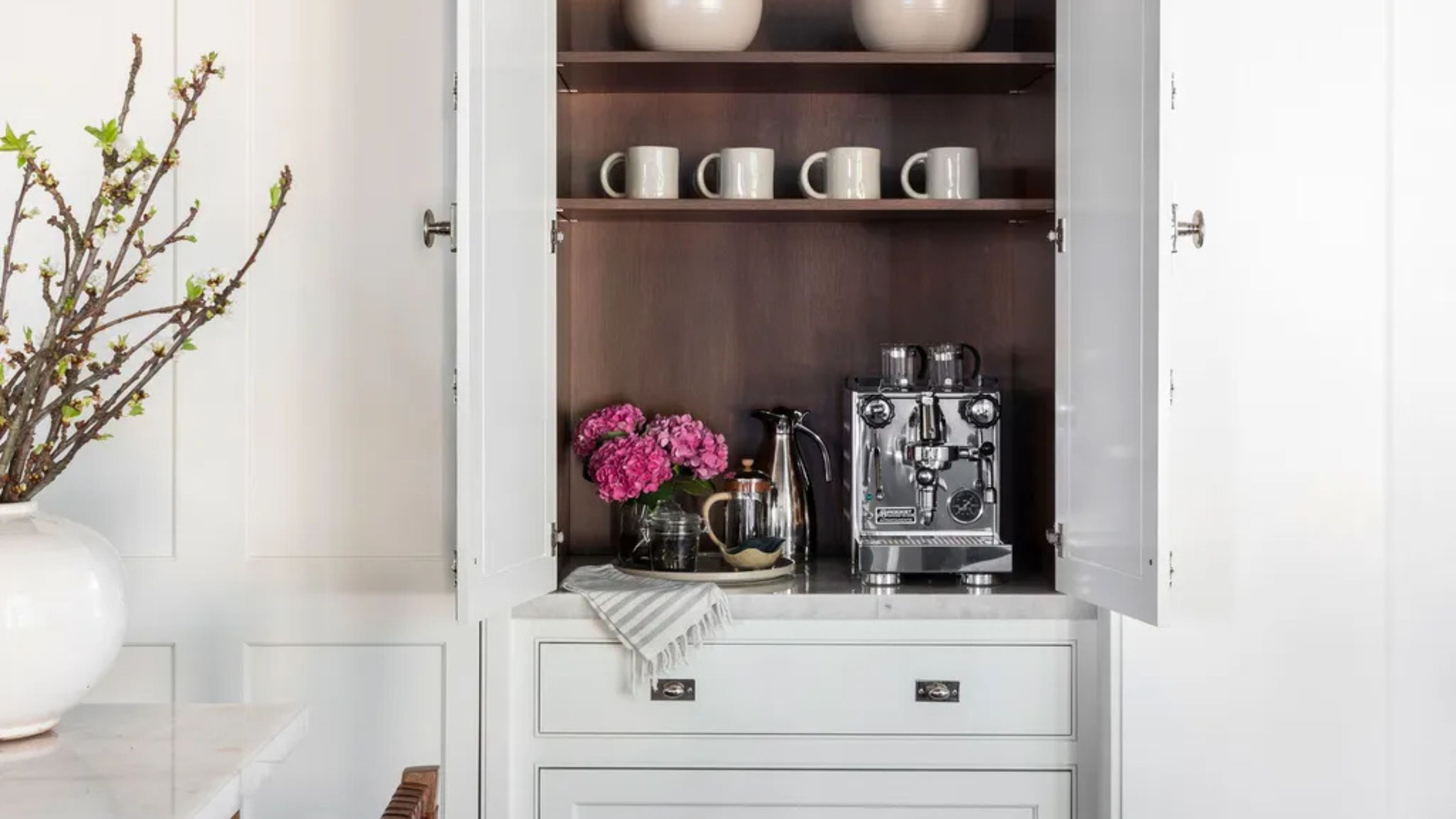 Turns Out the Coolest New Café is Actually In Your Kitchen — Here's How to Steal the Style of TikTok's Latest Trend
Turns Out the Coolest New Café is Actually In Your Kitchen — Here's How to Steal the Style of TikTok's Latest TrendGoodbye, over-priced lattes. Hello, home-brewed coffee with friends. TikTok's 'Home Cafe' trend brings stylish cafe culture into the comfort of your own home
By Devin Toolen Published
-
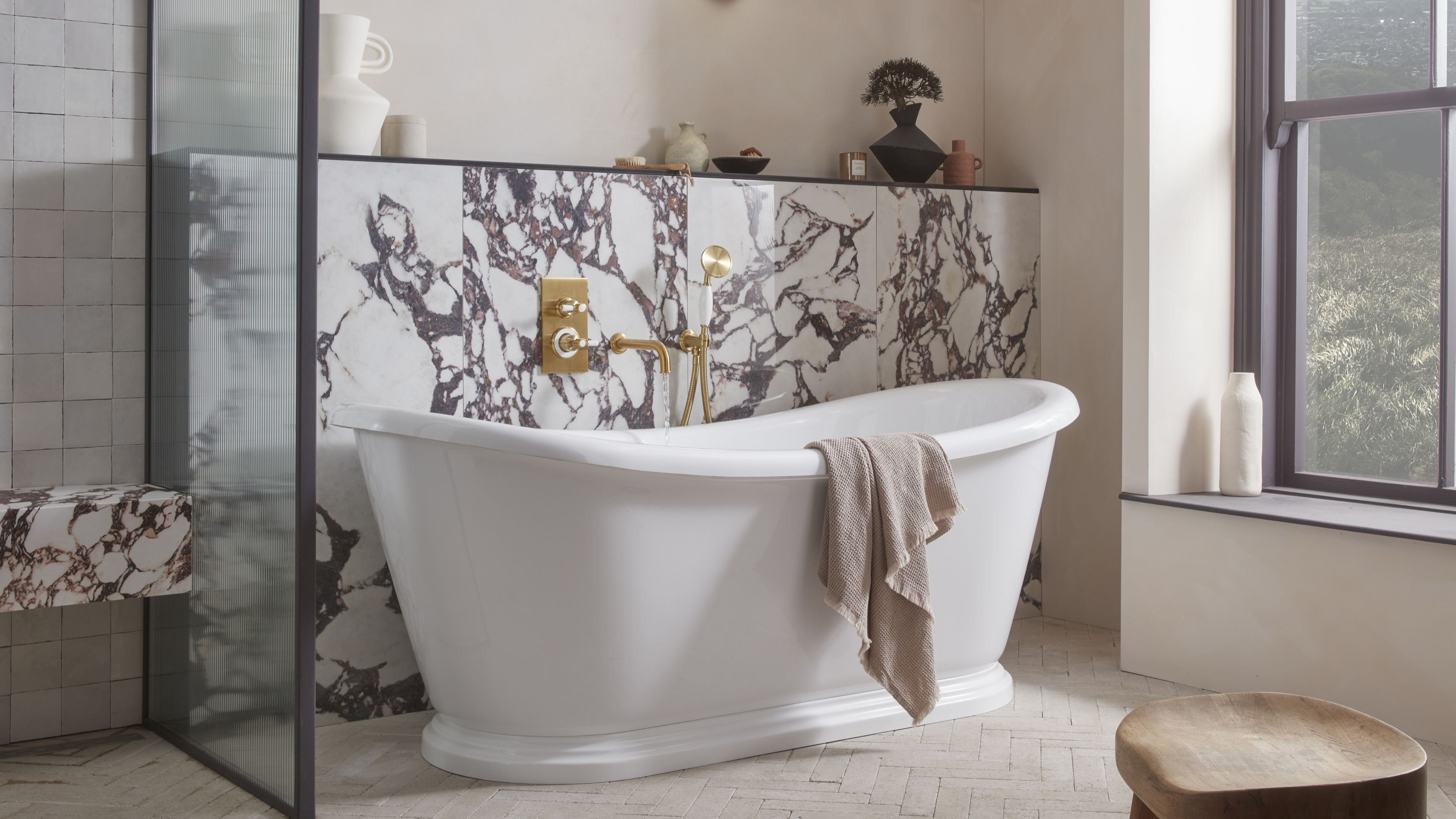 5 Bathroom Layouts That Look Dated in 2025 — Plus the Alternatives Designers Use Instead for a More Contemporary Space
5 Bathroom Layouts That Look Dated in 2025 — Plus the Alternatives Designers Use Instead for a More Contemporary SpaceFor a bathroom that feels in line with the times, avoid these layouts and be more intentional with the placement and positioning of your features and fixtures
By Lilith Hudson Published